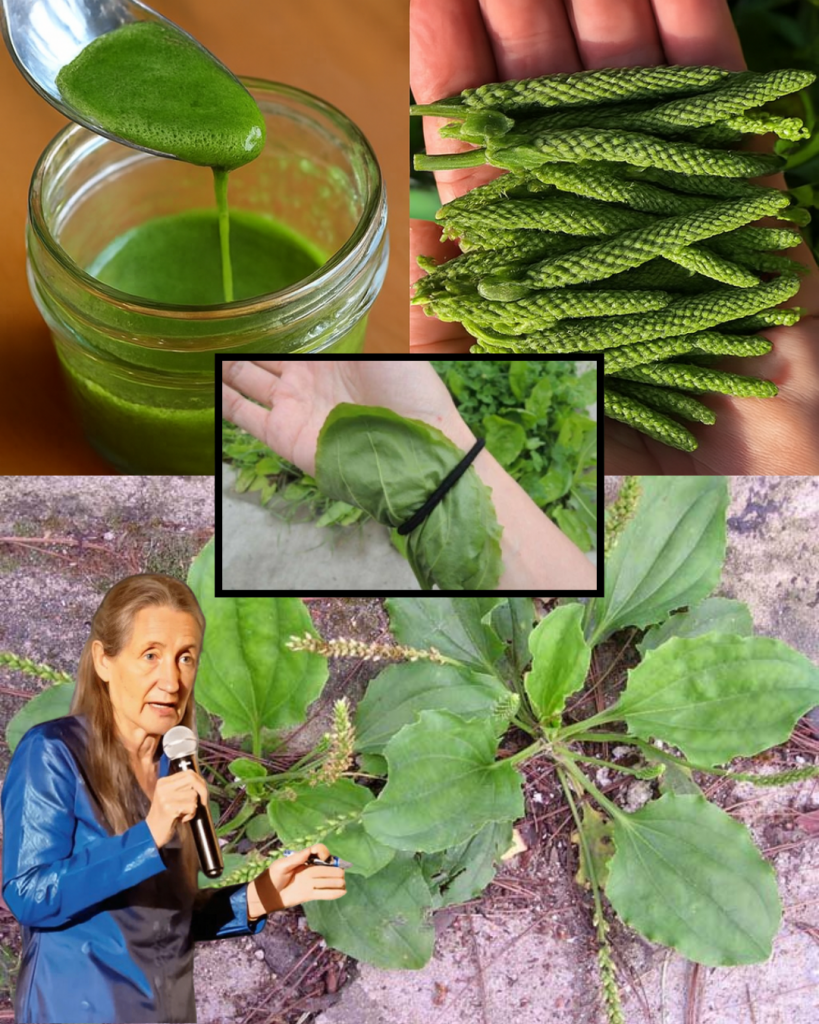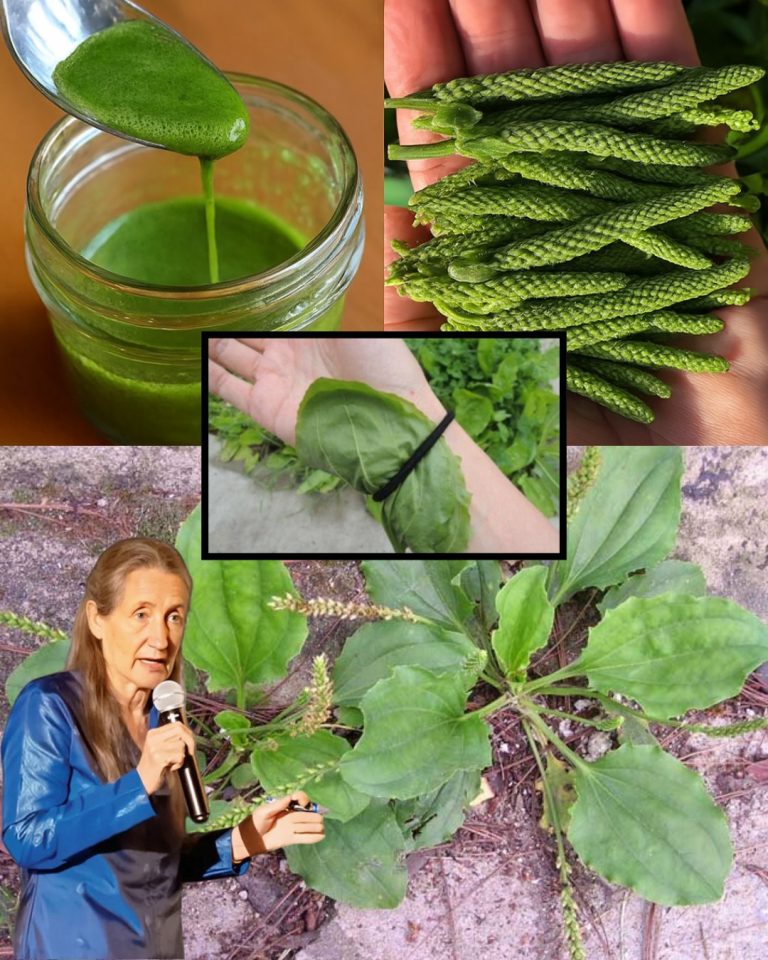Have you ever stepped over a cluster of broad, green leaves sprouting along your driveway or garden path, dismissing them as mere weeds? What if those unassuming plants were a secret to natural healing, waiting to be discovered? Meet Plantago major, commonly known as plantain—not the starchy fruit, but a humble herb with centuries of healing wisdom tucked into its leaves. 🌱 This often-overlooked plant is a wellness gem, offering gentle support for your skin, digestion, and even your lungs. Ready to unlock its potential? Let’s dive into the quiet power of plantain and how it can transform your self-care routine.

What Is Plantago Major?
Plantago major is a low-growing, resilient herb with wide, oval leaves and delicate green flower spikes. You’ve likely seen it thriving in unexpected places—cracks in sidewalks, edges of fields, or even your backyard. Found across North America, Europe, and Asia, this plant is nature’s survivor, flourishing where others falter.
What makes plantain special? Its leaves and seeds are packed with healing compounds like:
- Flavonoids: Antioxidants that protect cells from damage.
- Polysaccharides: Soothe skin and boost immunity.
- Aucubin: A natural anti-inflammatory for calming irritation.
- Phenolic acids & baicalein: Promote balance and resilience.
These nutrients work together to support your body in gentle, effective ways, from healing scrapes to easing digestion. Curious about how to use it? Let’s explore its benefits and practical applications.
Gentle Relief for Skin Irritations
Scraped your knee on a hike? Stung by a mosquito during a backyard barbecue? Plantain is your go-to for minor skin woes. For centuries, healers have turned to this herb to soothe and support the skin. Its natural anti-inflammatory and antimicrobial properties make it ideal for:
- Scrapes and cuts: Keeps skin clean and supports healing.
- Bug bites: Reduces itching and swelling with a cooling effect.
- Minor burns or rashes: Offers comfort and calms irritation.
How to Use Plantain for Skin
- Find fresh leaves: Pick clean, pesticide-free plantain leaves from your yard or a trusted area.
- Crush them: Gently mash the leaves with clean hands or a mortar and pestle to release their juices.
- Apply directly: Place the crushed leaves on the affected area and secure with a bandage if needed.
- Make a balm: Infuse dried plantain leaves in olive or coconut oil for 2–4 weeks, strain, and mix with beeswax for a soothing salve.
Pro Tip: Always wash leaves thoroughly and do a patch test to ensure no allergic reactions. 🩹
A Natural Boost for Digestion
Struggling with occasional bloating or sluggish digestion? Plantain’s seeds, rich in mucilage (a gel-like fiber similar to psyllium husk), can help. This gentle fiber absorbs water, creating a soothing effect on your digestive tract. It’s a natural way to keep things moving smoothly without harsh laxatives.
Benefits of plantain for digestion include:
- Easing constipation: Softens stool for easier elimination.
- Calming gut irritation: Soothes discomfort from inflammation.
- Promoting regularity: Supports balanced bowel movements.
How to Use Plantain for Digestion
- Gather seeds: Collect dried plantain seeds or purchase from a reputable source.
- Soak them: Mix 1–2 tablespoons of seeds in a glass of warm water and let sit for 10–15 minutes.
- Drink slowly: Sip the mixture before bed or after meals to ease digestion.
- Stay hydrated: Drink plenty of water to enhance the mucilage’s effects.
Note: Start with a small amount to see how your body responds, especially if you’re new to fiber-rich remedies. 🌾
